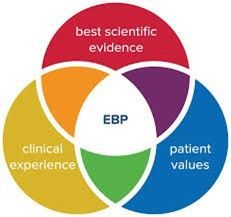Should Behavioral Health Shift More to Private Funding?
It might be the right moment for these organizations to explore new funding opportunities, whether large or small.

This week, I came across an interesting article on the Reason Magazine website about Hillsdale College, and it made me think about its connections to behavioral health. The piece discussed how the Trump administration is freezing Harvard’s federal funding due to their policies, illustrating how the government might try to influence how universities operate. It's a bit concerning that a university's fate could swing with the different administrations. Whether this will happen is still uncertain, but it's clear that Harvard is gearing up for a lengthy and expensive legal battle over it. The article also highlights how Hillsdale has strategically grown its endowment over time, allowing it to fully cut ties with the state of Michigan and become entirely privately financed.
Now, the notion of private funding for behavioral health organizations may seem a bit out there, especially since Medicaid is currently the largest funder of mental health services in the country. For organizations to sever ties with Medicaid feels like a risky move. However, numerous large non-profit organizations have already established significant fundraising programs, backed by generous donors and annual events like golf tournaments and other engaging activities. They could gradually reduce their dependence on Medicaid by boosting these efforts or considering private insurance as a viable option.
And what about the smaller agencies? Those “Mom and Pop” organizations often find they don’t have the time to focus on fundraising. However, with the winds of politics shifting, it might be the right moment for these organizations to explore new funding opportunities, whether large or small. Launching a fundraising program and seeking support from private or local foundations for grants could build a financial safety net, helping to lessen their reliance on Medicaid.
In addition to the political landscape, the economic environment also plays a huge role in Medicaid funding. Over the last twenty years, federal funding has faced collapses during critical moments, like the Great Recession in 2008 and the COVID pandemic in 2020, leading to reduced income, lower taxes, and less available funding for Medicaid. Finding options for private funding to complement Medicaid payments could very well be the way forward for both large and small behavioral health organizations.




